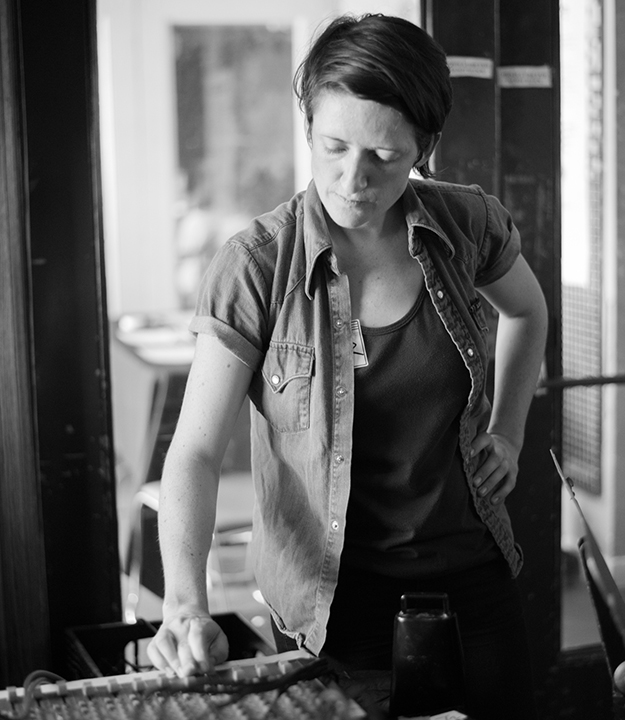Push the button: Bringing music production to the masses

Turn up the mid. Heather Kirby, a McMaster graduate student in the Faculty of Humanities and bassist with the band Ohbijou, led a series of production and engineering seminars in Toronto last month — the women and trans-friendly 'Resampled Workshops.'
Heather Kirby always had a lot of time on her hands, braving long stretches of desolate highways while staring out of van windows.
It was during many of these cross-Canada trips, while traveling as a bassist with Toronto band Ohbijou, that Kirby began to think less about the business of performing music, and more about the behind-the-scenes work involved in production and engineering. More specifically, she wanted to know why so many women and transgendered folks were seemingly absent from the field.
What started as a roadside daydream finally emerged in July as the “Resampled Workshops,” a seminar series held in Toronto that introduced a group of 55 women and transgendered participants to the world of music production. Kirby, now a graduate student in McMaster’s Faculty of Humanities, received a Forward with Integrity grant along with additional funding from McMaster’s SPICES initiative to make the project a reality.
In her Forward with Integrity proposal letter, Kirby discusses the importance of participatory learning, building a supportive community and making same-sex role models more visible in the production and engineering spheres. “One of the problems is not having any visible female or trans role models or mentors,” Kirby explains. “It’s a major barrier for people looking to get into the production and engineering business.”
The role of a producer involves guiding the creative vision of recoding session — capturing lightning in a bottle, so to speak. The producer’s job is to capture the good ideas, scrap the bad ones and (at times) keep the band members from killing each other over a difference of opinion. Engineers, on the other hand, typically handle the meat-and-potatoes side of a studio session — setting up microphones, dialling in tones and making sure volume levels are properly set before pushing “record.” These lines have become increasingly blurred, however, with the advent of new and accessible technology.
The free seminar, which took place at the Tranzac Club in downtown Toronto, covered many of the basics when it comes to actually using this technology. Sessions included “Home Recording Basics,” “Hardware Looping,” “Intro to Analog Sound Synthesis,” “DJ 101” and “Music Technology Playground,” with an overall goal of breaking down some of the perceived barriers associated with modern studio recording. In other words, showing women and trans producers that great music can be recorded at home or in a modest rehearsal space — all it takes is a little know-how.
“It’s important for anyone experimenting in the production side of things to meet new people, pool resources and trade gear,” says Kirby. “Renting equipment is also an option. You can get a feel for something and take it back, without having to make a big purchase.”
Christina Baade, an associate professor in the Department of Communication Studies and Multimedia, supervised the development of Kirby’s seminar project. The pair also collaborated on the popular Music and Labour conference earlier this year — a McMaster-led research symposium held in downtown Hamilton.
“Tech is still very much gendered masculine,” says Baade. “There is research that suggests boys are still more likely to ‘own’ technology in the home, and there’s a whole series of barriers to women and trans folks that are both structural and cultural.”
For Baade, who described Kirby as a consummate professional with an incredible attention to detail, the importance of an event like Resampled is giving women and trans producers “permission to play.”
While no plans are in the works for a second run of Resampled Workshops, Kirby is hoping she’ll be able to organize another event in Toronto, or even Hamilton, in the near future.
For more information, check out the project on Facebook.
